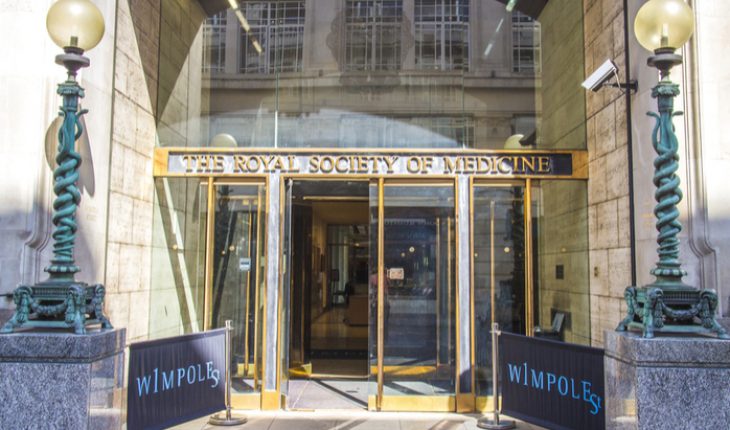On Thursday 23 November five young doctors will compete for the coveted title of Wesleyan RSM Trainee of the Year. Marking the culmination of the Royal Society of Medicine’s 2016/17 prize programme for trainee doctors, the awards evening will celebrate the very best of the RSM and its trainees. The RSM will be awarding prizes to both oral and poster finalists.
The five oral finalists will present for 10 minutes, followed by a 5 minute Q&A session with the audience and finalist judges who this year will include:
• Dr Fiona Moss, Dean, Royal Society of Medicine;
• Sir Simon Wessely, President, Royal Society of Medicine;
• Dr Keith Ridge CBE, Chief Pharmaceutical Officer for England, NHS England;
• Professor Gillian Leng CBE, Deputy Chief Executive, National Institute for Health and Care Excellence.
Paul Sutton, an ST6 trainee in general surgery, is one of the five finalists. His presentation is ‘Nqo1 is a predictive biomarker and novel therapeutic target in metastatic colorectal cancer.’
‘I studied medicine at the University of Nottingham, undertook Foundation Programme training in the East Midlands, Core Surgical Training in the North West and Higher Surgical Training on Merseyside.
I am an ST6 trainee in general surgery with an interest in colorectal surgery and surgical oncology. I’m currently working at the Royal Liverpool Hospital as a Specialty Registrar in General Surgery, and also as an Honorary Senior Lecturer at the University of Liverpool.
In patients with metastatic colorectal cancer we are limited to the biological information we can acquire from the primary tumour (by endoscopy), as biopsy of liver metastases is associated with cutaneous metastasis and unfavourable prognosis.
The first part of my work was to consider whether the biological information we can obtain from the primary tumour is representative of the metastases. Having looked at that, I looked for biomarkers in the primary tumour which predict the response of liver metastases to chemotherapy.
Having identified a biomarker, I validated it in a larger patient cohort, and constructed an in vitro model to evaluate whether manipulating this protein could improve chemosensitivity.
A number of people have chemotherapy prior to surgery, and most derive some benefit. There are a group of people, however, who don’t respond to chemotherapy. These people suffer from all of the side effects, and a delay in them getting their surgical treatment, without much benefit.
It was clear to me that finding ways to improve the response of cancers to chemotherapy was an important clinical problem which needed to be addressed.
I had to create a research infrastructure in Merseyside to enable me to collect patient information and tissue samples from multiple sites. Not all NHS trusts are very familiar with facilitating research studies.
This project has given me an opportunity to present to senior colleagues and discuss my work both in the UK and abroad. It’s clearly a talking point now that I’ve got to the point in my career when I’m applying for fellowships and jobs.
To those doctors who think this award might be something for them, make sure you apply! Take time and care in published material to ensure it’s of the highest quality as it reflects on you and your work. Lots of people gave me advice and guidance on the way through, so find somebody who can point you in the right direction and read your submissions whilst you’re getting started.’
The RSM Wesleyan Trainee of the Year Award takes place at the RSM on Thursday 23 November and is free to attend. Find out more and book at www.rsm.ac.uk/wesleyan2017
- Gut microbiome could delay onset of type 1 diabetes - 3rd April 2025
- The da Vinci 5 Robot Is Set To Transform Bariatric Care: - 31st March 2025
- Beyond money: the hidden drivers fuelling child food insecurity - 31st March 2025






